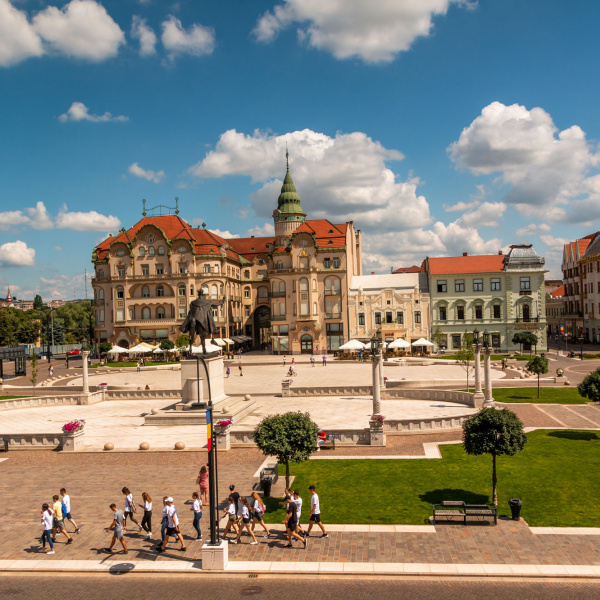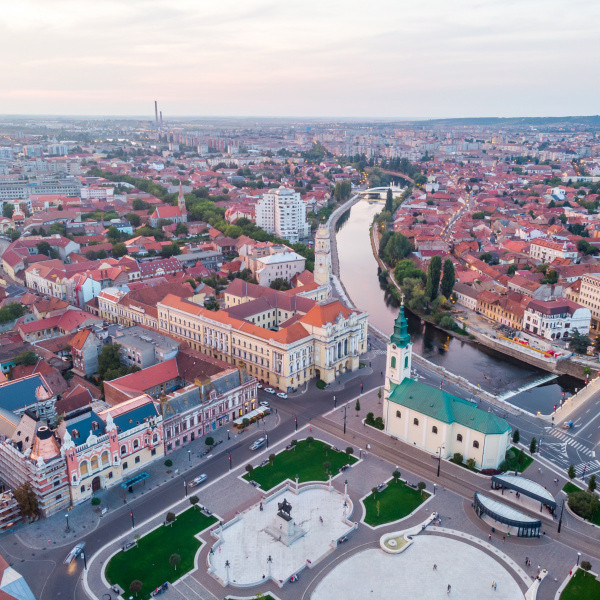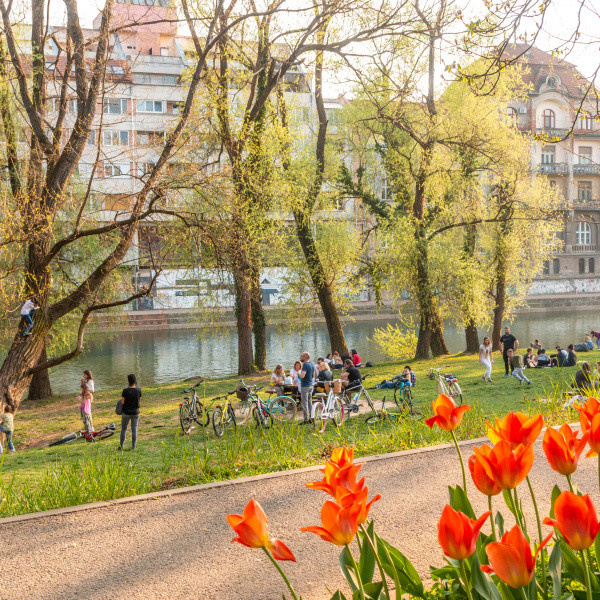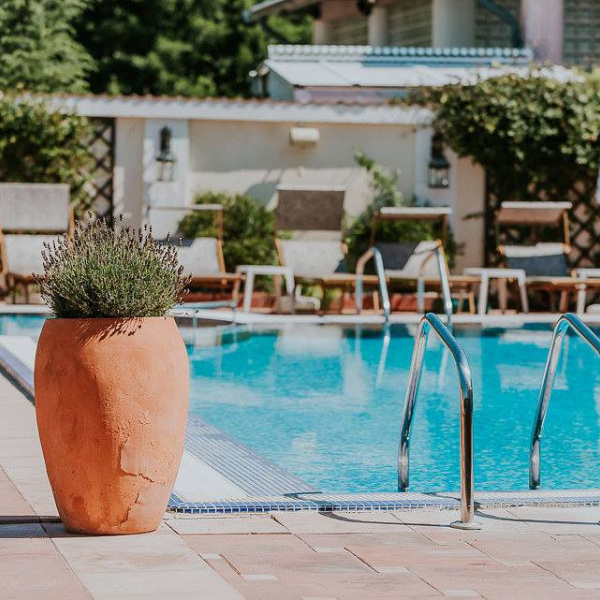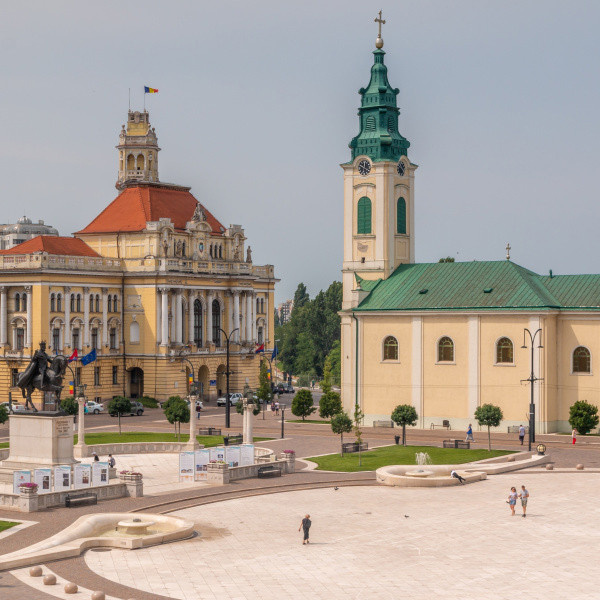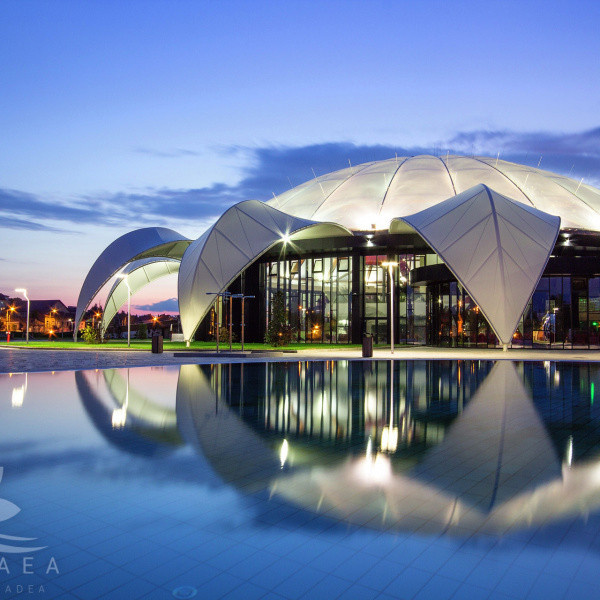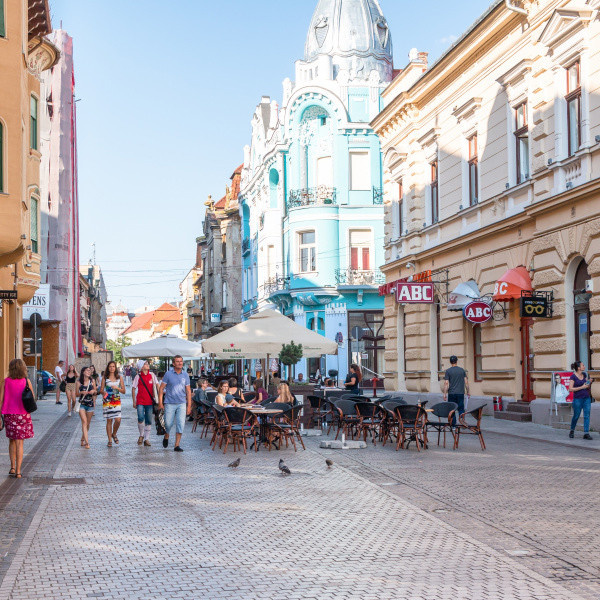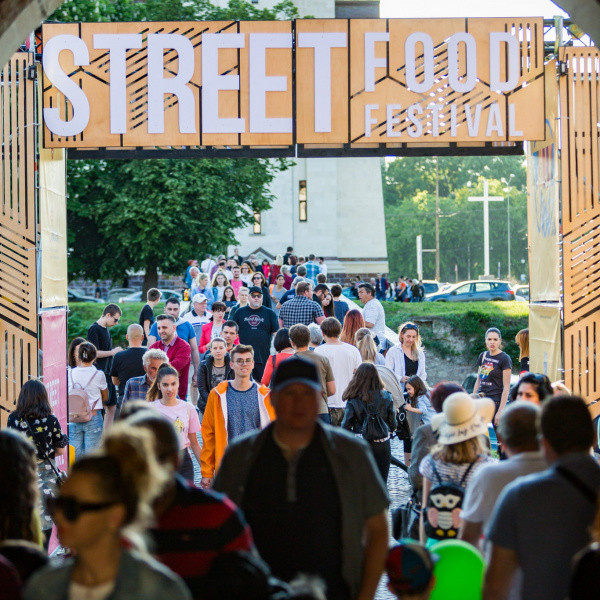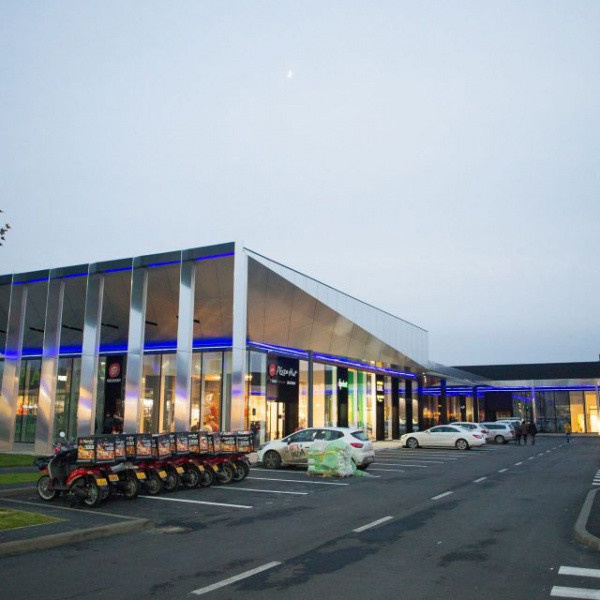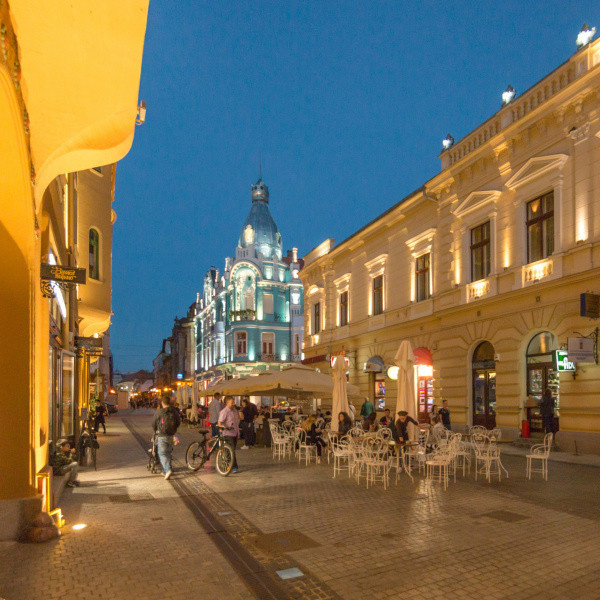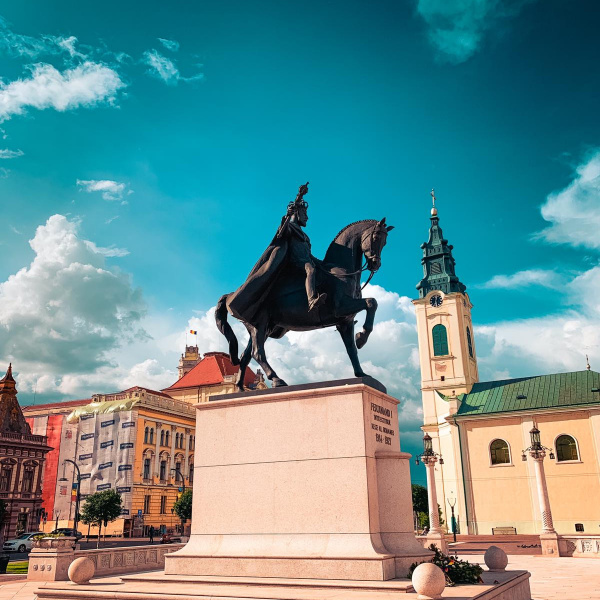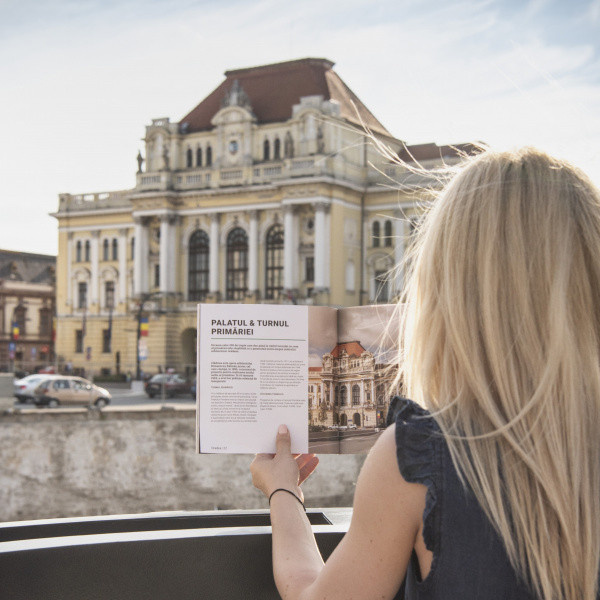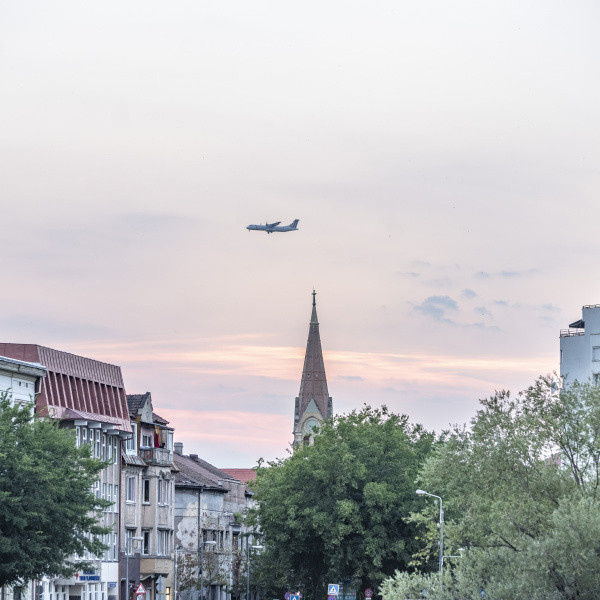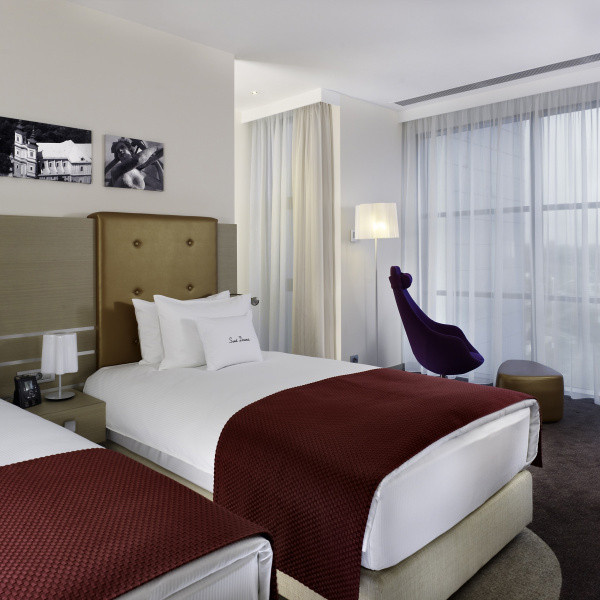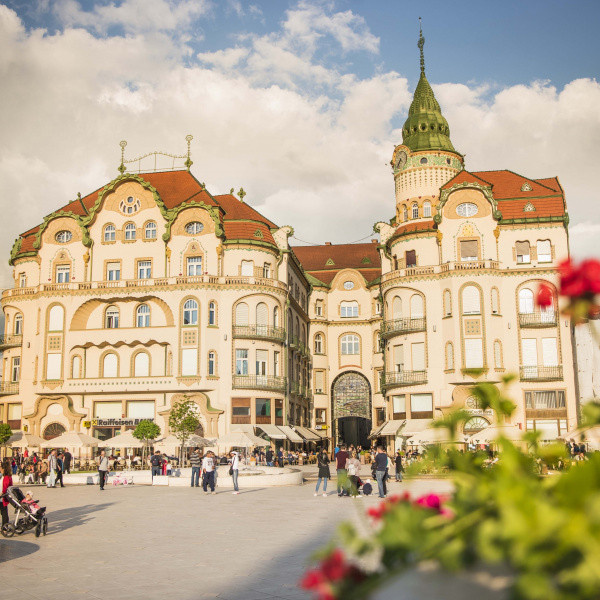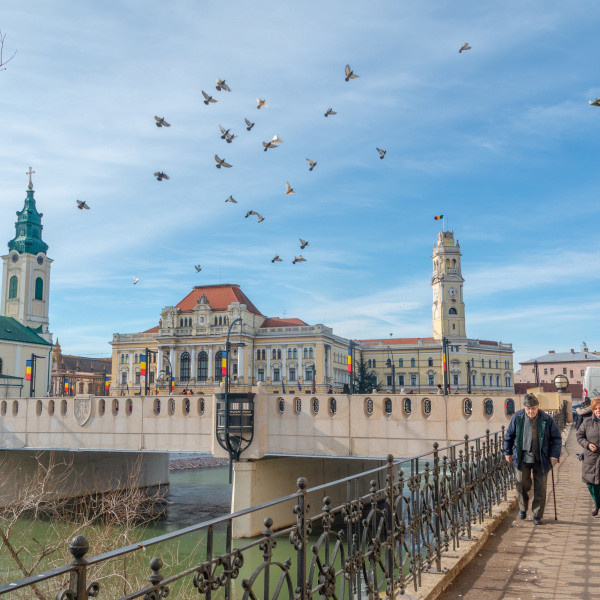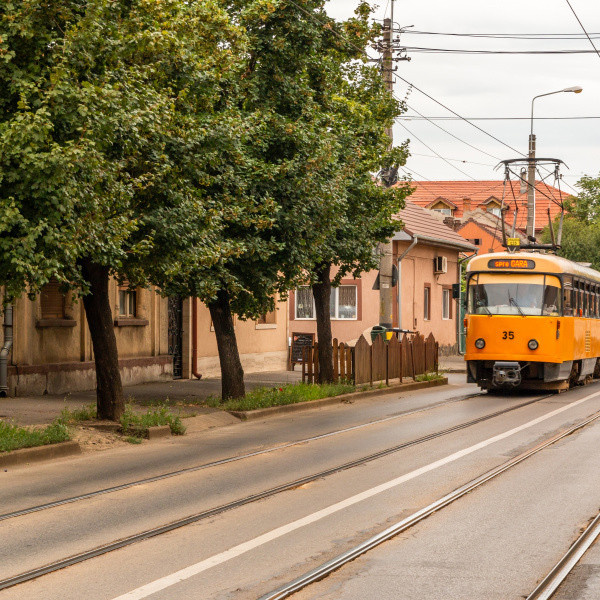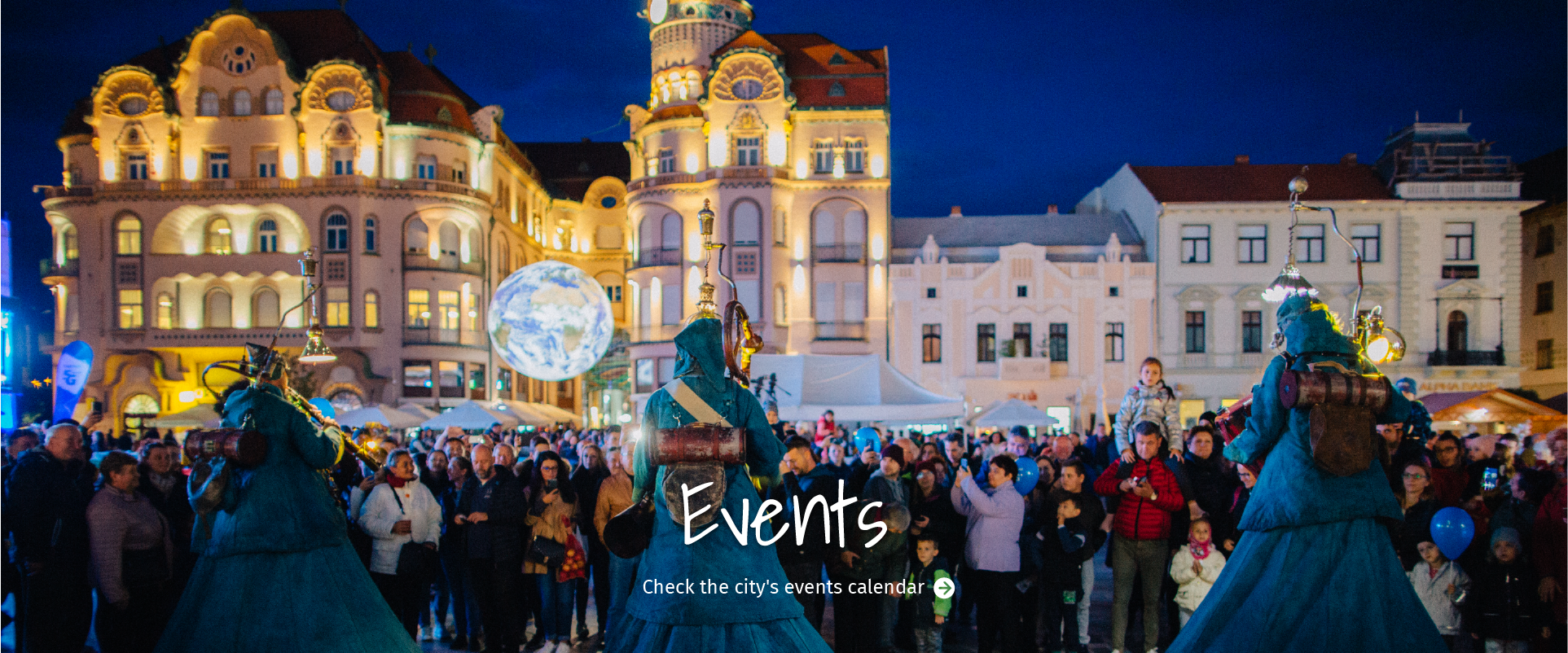A chic building, unique in its beauty and modernity, which can stand next to the most original architectural creations in Europe from the early twentieth century, Darvas-La Roche House was built between 1909 and 1912 by brothers László and József Vágó.
Elegance and spectacle in Darvas-La Roche House
At a glance, you will be impressed by a rhythmic façade with decorative Zsolnay ceramic buttons, with six distinct decorative motifs. Their green-blue colour, with the metallic reflections of the eosin enamel, brings elegance and majesty to the whole architectural ensemble.
A central element of the façade is the balcony, which impresses with its perforated decoration. The symbolic motifs found here are pinecones, hearts, and plant spirals.
A particular attraction of the house is the stained-glass decorating both fronts and main rooms, with representative details of flora and fauna. The female face, which appears in the stained-glass medallions, gives the composition a special charm.
The hardware of the house is also very valuable. The iron was modelled under a design that embodies vegetal motifs with symbolic meanings, in the geometric vision of the Viennese Secession. The triangular motif which includes the tulip, the spiral stems, the vertical strips with sprouted bulbs, can be found on the parapet of the balcony which is open to the inner courtyard.
Vintage interior
Stepping beyond the façade, the house gradually unveils treasures. The most spectacular decorative elements are the stained-glass windows. The glazed wall of the ground floor lobby is the first of the original valuable pieces that greets the visitor. Upstairs, the gaze is directed to a stained-glass window that preserved its original place and shape in the house. It is decorated with flower stalks rising from a pot, while colorful birds are nibbling on them. The bedroom offers a wide glazed panorama, the northern wall being entirely made up of four monumental windows with decorations that reach their maximum brightness when seen from the inside. The stained-glass windows are made of mass coloured glass pieces, assembled through a drawing made of lead strips, this being the authentic technique of the old craftsmen.
Uniquely valuable pieces include the fountain in the hall decorated with geometric Zsolnay ceramic elements, as well as the two radiator masks made of stamped copper, perforated with geometric cut-outs specific to the Viennese Secession style.
The door handles and window lockers are also interesting, all customized with the owner's monogram inscribed in a circle "DI", which shows that the proposed interior design of the house was addressed to the smallest detail. The living room ceiling is highly remarkable, being richly decorated with lush plant motifs.
The neo-rococo style furniture, made of white painted maple wood, has been kept in the bedroom and includes several pieces: four-poster bed, bedside tables and chest of drawers with three drawers decorated with the cast and chiselled brass, a three-door wardrobe, richly decorated with leaves and flowers, the central door with polished crystal, a mirror wall made of Venetian crystal and exotic wood, a circular table with four arched legs, and a six arms chandelier with opalescent glass.
The kitchen retains from the original furniture a cooking stove with tile and tuci hob, as well as the tiles and the floor decorated with white-blue geometric motifs, proof that even these details of the room have not been neglected. To complete the authentic atmosphere, the first floor was decorated with pieces of antique furniture, objects and paintings that together define the modern and refined lifestyle of the early twentieth century.
#TravelTips
The first Art Nouveau Museum in Romania
After a major restoration process, Darvas - La Roche House houses the first Art Nouveau Museum in Romania. The exhibition presents the interiors from “La Belle Epoque” and it embodies the bourgeoisie atmosphere in Oradea, at the beginning of the XX century.
Don't miss this extraordinary opportunity to explore the rich heritage of Art Nouveau in Romania.
More details about at Oradea Heritage






/Casa_Darvas/IMG_2075__1_optim-700x400.jpg?token=645e424f1f9e6e05f3bfa9a7d6dbc14d)
/Casa_Darvas/IMG_2080__1_optim-700x400.jpg?token=a386a05a3319051a17d43caf229e9e5b)
/Casa_Darvas/IMG_2085__1_optim-700x400.jpg?token=b8ecf0988f888df9fb24b498e075da1d)
/Casa_Darvas/IMG_2088__1_optgim-700x400.jpg?token=203ede4bc87bce2cd179ee34ae68e4e8)
/Casa_Darvas/IMG_2100__1_optim-700x400.jpg?token=1c7a6e16910fd7dd7035f0dc3ee00109)
/Casa_Darvas/IMG_2101__1_optim-700x400.jpg?token=4e27f1529fb7b55d285bbff6ca569a19)
/Casa_Darvas/IMG_2104__1_optim-700x400.jpg?token=6b5d02a5723d26a1ee017e98f821ca40)
/Casa_Darvas/IMG_2105__1_optim-700x400.jpg?token=42a88e9f50eed46daf0c7c55699f15cc)
/Casa_Darvas/IMG_2111__1_optim-700x400.jpg?token=04b241d2ef6d1b86384cca25398a9baa)
/Casa_Darvas/IMG_2124__1_optim-700x400.jpg?token=236991e2efa68fc3bf11d4b381758aa6)



